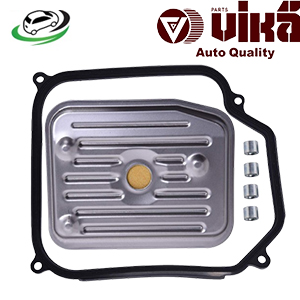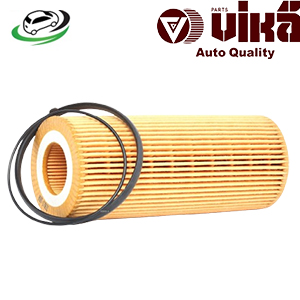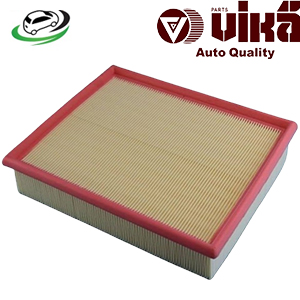-16%
Get AUDI A4 B5 (8D2)/ A6 C5 (4B2)/ Cabriolet B3 (8G7)/ Allroad C5 (4BH)/ A6 C5 Avant (4B5) / VW Passat B5 (3B2)/ Passat B5.5 (3B3) Air Filter 58133843
The air filter is a crucial component of an internal combustion engine, playing an essential role in ensuring optimal engine performance, fuel efficiency, and longevity. It is designed to trap dirt, dust, and other contaminants from the air before it enters the engine, helping to maintain clean air intake. Understanding the functions, importance, maintenance practices, and common issues associated with air filters is vital for vehicle owners and automotive professionals.
Functions of the Air Filter
- Contaminant Removal: The primary function of the air filter is to remove particulates, such as dirt, dust, pollen, and debris, from the air entering the engine. By preventing these contaminants from entering the combustion chamber, the filter helps protect engine components from wear and damage.
- Enhancing Air Quality: Clean air is essential for efficient combustion. The air filter ensures that the engine receives a steady supply of clean air, which is vital for optimal performance and emissions control.
- Supporting Fuel Efficiency: An air filter that is functioning properly allows for a consistent flow of clean air, which is crucial for efficient fuel combustion. A clean filter can help improve fuel economy, while a clogged filter can lead to decreased efficiency and increased fuel consumption.
- Preventing Engine Wear: By filtering out harmful particles, the air filter helps reduce engine wear. Contaminants that enter the engine can lead to increased friction and wear on components, resulting in reduced engine lifespan.
- Optimizing Engine Performance: A clean air filter contributes to better engine performance. When the engine receives the right amount of clean air, it can operate more efficiently, resulting in improved horsepower, acceleration, and responsiveness.
Importance of the Air Filter
- Engine Performance: A well-functioning air filter is vital for optimal engine performance. A clogged or dirty filter can restrict airflow, leading to poor acceleration, decreased power, and overall reduced efficiency.
- Emissions Control: Clean air is essential for minimizing harmful emissions. A malfunctioning air filter can lead to incomplete combustion, resulting in increased emissions and potential failure to meet environmental regulations.
- Fuel Economy: A clean air filter promotes better fuel atomization, allowing for more efficient combustion. This efficiency translates to improved fuel economy, saving vehicle owners money on fuel costs.
- Cost-Effectiveness: Regularly replacing the air filter can prevent more significant issues down the line, such as engine damage or reduced efficiency. This proactive maintenance is cost-effective and can save vehicle owners from expensive repairs.
- Engine Longevity: By preventing contaminants from entering the engine, the air filter helps extend the overall life of the engine. Regular maintenance of the air filter is crucial for maintaining the health of the engine and its components.
Types of Air Filters
- Panel Air Filters: These filters are flat and rectangular, commonly used in most vehicles. They are made of layers of filter media and are easy to replace during routine maintenance.
- Cone Air Filters: Often used in performance vehicles, cone air filters provide increased airflow and are designed to improve engine performance. They can be reusable and are typically made from cotton or foam materials.
- Cabin Air Filters: While not directly related to engine performance, cabin air filters clean the air entering the vehicle’s interior. They remove pollutants, pollen, and odors, improving air quality for passengers.
- High-Performance Air Filters: These filters are designed to maximize airflow and filtration efficiency. They often use advanced materials and designs to provide better performance compared to standard filters.
- HEPA Filters: High-Efficiency Particulate Air (HEPA) filters are highly effective at trapping small particles. Although they are more common in residential and commercial settings, some high-end vehicles use HEPA filters for enhanced air quality.
Maintenance of the Air Filter
- Regular Inspections: Routine inspections of the air filter should be part of regular vehicle maintenance. Check for dirt, debris, and discoloration, which may indicate that the filter needs replacement.
- Follow Manufacturer’s Recommendations: Adhere to the manufacturer’s guidelines for air filter replacement intervals. Typically, air filters should be replaced every 12,000 to 15,000 miles, but this can vary depending on driving conditions and vehicle type.
- Monitor Engine Performance: Pay attention to any changes in engine performance, such as decreased power, rough idling, or poor acceleration. These symptoms may indicate a clogged or failing air filter.
- Use Quality Replacement Parts: When replacing the air filter, always use high-quality replacement parts that meet or exceed manufacturer specifications. Using inferior parts can lead to premature failure and performance issues.
- Clean Reusable Filters: Some air filters, such as cone filters, are designed to be cleaned and reused. Follow the manufacturer’s instructions for cleaning and maintaining reusable filters to ensure optimal performance.
- Consider Driving Conditions: If you frequently drive in dusty or polluted environments, you may need to replace the air filter more frequently. Monitoring your driving conditions can help you determine the best maintenance schedule.
Common Issues Associated with Air Filters
- Clogged Air Filter: A clogged air filter is one of the most common issues. Symptoms of a clogged filter include reduced engine performance, decreased fuel efficiency, and increased emissions. If the filter is severely clogged, it can restrict airflow, leading to stalling or rough idling.
- Dirty Filter: Over time, the filter can become dirty and less effective at trapping contaminants. A dirty filter can lead to reduced airflow and poor engine performance.
- Incorrect Installation: Improper installation of the air filter can lead to unfiltered air entering the engine, resulting in potential damage and performance issues. It’s essential to follow manufacturer guidelines when installing the filter.
- Filter Material Degradation: The material of the filter can degrade over time, leading to reduced filtration effectiveness. Regular inspections and timely replacement are essential to prevent this issue.
- Filter Damage: Physical damage to the air filter, such as tears or holes, can allow contaminants to bypass the filter and enter the engine. Damaged filters should be replaced immediately to prevent engine wear.
- Air Leaks: Leaks in the air intake system can lead to unfiltered air entering the engine. Inspecting the intake system for cracks or loose connections can help prevent this issue.
Conclusion
The air filter is a vital component of an internal combustion engine, responsible for ensuring that the engine receives clean air for optimal performance and efficiency. Its functions include contaminant removal, enhancing air quality, supporting fuel efficiency, and preventing engine wear.
Regular maintenance and timely replacement of a worn or damaged air filter are crucial for preventing common issues such as clogging, reduced performance, and increased emissions. Understanding the importance of the air filter and monitoring its condition can save vehicle owners from costly repairs and enhance the longevity of the engine.
Investing time in the maintenance of the air filter is essential for achieving reliable engine performance and preventing severe engine damage. A properly functioning air filter contributes not only to efficient engine operation but also plays a significant role in ensuring the vehicle’s overall safety and reliability. By understanding how the air filter works and its importance in the engine system, vehicle owners can take proactive measures to maintain their vehicles and enjoy optimal performance for years to come.
Follow us on Facebook for more parts.




Reviews
Clear filtersThere are no reviews yet.